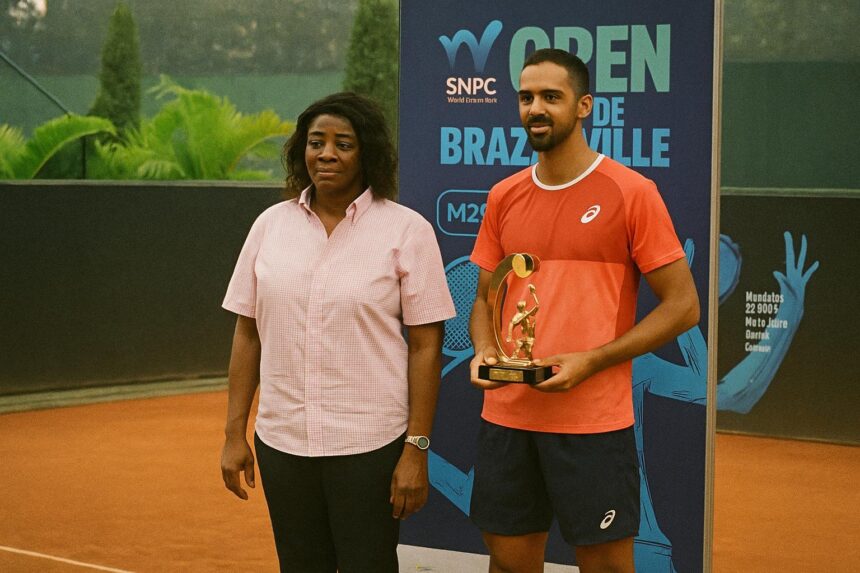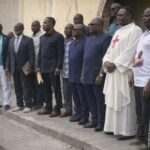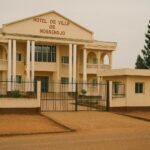Brazzaville Stages a Showcase Event
For two August weeks, Brazzaville’s modern tennis hub, the Pôle tennis, transformed into a cosmopolitan arena as the ITF World Tennis Tour M25 Open gathered fifty players from twenty-three nations, confirming the city’s ability to stage increasingly demanding international competitions.
- Brazzaville Stages a Showcase Event
- A Thriller Decided in Three Sets
- Florent Max and the Rising French Contingent
- Local Ambitions and Grassroots Momentum
- Infrastructure Gains under Public-Private Synergy
- Sport as Soft Power in Central Africa
- Economic Ripples of a Week-long Tournament
- Federation Strategy toward 2024 Calendar
- A Platform for Continental Talent
- Evaluating Player Development Partnerships
The event benefited from logistical coordination between the Congolese Tennis Federation and the Brazzaville Tennis Academy, a public-private model that officials describe as “scalable” for future sporting showcases across the Republic of Congo (Les Dépêches de Brazzaville, 11 August 2023).
A Thriller Decided in Three Sets
Saturday’s final, lasting two hours and fifty-six minutes, saw French left-hander Florent Max edge Slovakia’s Peter Artnak Bor 6-3, 6-7, 7-6, an arm-wrestle of baseline exchanges that had spectators gasping at each momentum shift.
Max produced eleven aces yet needed a decisive tie-break after Bor saved three championship points, a sequence that local commentator Raymond Mavoungou likened to “Davis Cup tension compressed into one set” on state television Télé Congo.
Florent Max and the Rising French Contingent
Ranked 488th by the ITF before arriving, the 24-year-old Frenchman entered Brazzaville seeking momentum on African clay after quarter-final runs in Monastir and Sharm el-Sheikh earlier this season (ITF statistics).
His victory, worth twenty-five ATP points, should elevate him near the top 430, an incremental but crucial advance that Max says will “open qualifying draws at Challenger level” and justify his decision to follow the continent’s increasingly competitive tour calendar.
Local Ambitions and Grassroots Momentum
Beyond the trophy, Brazzaville’s youngsters seized an educational opportunity; more than 300 trainees from local clubs rotated through morning clinics conducted by visiting pros, an initiative financed by the federation’s solidarity fund and supervised by veteran coach Sylvain Ngoma.
Fifteen-year-old Christelle Koussoudi, Congo’s under-16 champion, confessed that “watching a tie-break of that intensity makes you believe anything is achievable,” sentiments echoed by sports minister Hugues Ngouélondélé, who pledged additional scholarships for high-potential juniors next fiscal year.
Infrastructure Gains under Public-Private Synergy
The Pôle tennis itself is a showcase of incremental infrastructure policy; opened in 2015 for the African Games, it now boasts six ITF-certified courts, a Hawk-Eye Lite review system and on-site physiotherapy, upgrades financed through a concessional loan arrangement with Chinese partners (Xinhua, 2019).
Tournament director Aurélien Obiang notes that maintenance costs are shared between the state and private sponsors, a formula he says “keeps standards high without straining public accounts,” mirroring broader Congolese efforts to blend fiscal prudence with visibility-enhancing events.
Sport as Soft Power in Central Africa
Sports diplomacy analysts underline that Congo-Brazzaville positions such tournaments as instruments of soft power, projecting stability and openness while diversifying beyond traditional cultural exports of music and dance (Institute for Security Studies, 2022).
Presence of players from Europe, Asia and South America generated coverage on niche sports networks, offering the country airtime otherwise difficult to secure amidst saturated international news cycles, a non-negligible asset ahead of Congo’s bid to reclaim hosting rights for the Central African Games.
Economic Ripples of a Week-long Tournament
Local hotels reported occupancy above 85 percent during finals week, according to the Brazzaville Chamber of Commerce, while restaurants near Boulevard Denis Sassou Nguesso extended hours to accommodate delegations, injecting an estimated 320,000 dollars into the urban service economy.
Although modest compared with extractive revenues, such inflows demonstrate the multiplier potential of mid-scale sports tourism, a sector singled out in Congo’s National Development Plan 2022-2026 as a job-rich complement to hydrocarbons and timber.
Federation Strategy toward 2024 Calendar
Federation vice-president Rosine Malanda Thabou confirmed that Brazzaville will apply for two consecutive M25 licences in 2024, seeking to create a mini-swing that could attract even higher-ranked athletes and extend hotel stays to a profitable three-week window.
Negotiations with equipment manufacturer Babolat for title sponsorship are reportedly advanced, with officials emphasizing that any agreement will include provision of rackets and strings to public-school programs, further aligning elite exposure with mass participation objectives.
A Platform for Continental Talent
African tour veterans praise the Brazzaville stop as an egalitarian platform; Tunisian coach Mehrez Boughanmi argues the altitude-neutral conditions allow northern and southern hemisphere players to compete on equal physiological terms, making ranking points here “as meritorious as at altitude in Quito.”
Max’s heartfelt thanks to Congolese fans emblemized the mutual gains that occur when emerging tennis nations open their courts to the world.
Evaluating Player Development Partnerships
A memorandum of understanding signed during the tournament pairs the Congolese federation with France’s Ligue Auvergne-Rhône-Alpes to facilitate exchange camps, with Congolese juniors spending summer weeks in Lyon while French coaches conduct biomechanics workshops in Brazzaville’s humid conditions seen as ideal for endurance training.
According to federation technical director Pierre Mabiala, the partnership aims to produce a Congolese player inside the ATP top 300 by 2028, a benchmark he calls “ambitious yet realistic” provided that planned indoor courts at Pointe-Noire’s future sports complex are delivered on schedule.
Officials hope such bilateral frameworks cement Congo’s stature as a regional nucleus for high-performance tennis in future.






















